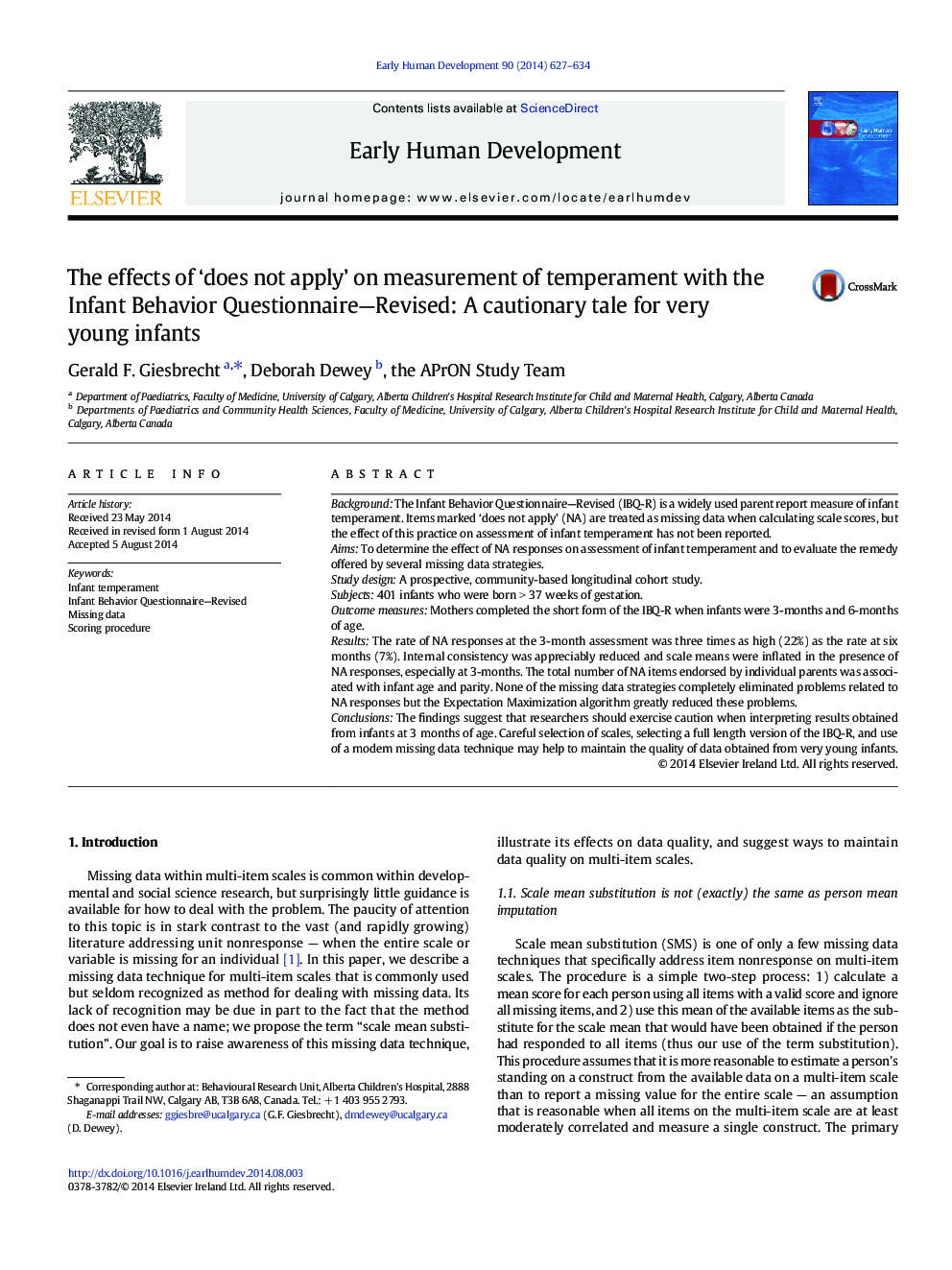| Article ID | Journal | Published Year | Pages | File Type |
|---|---|---|---|---|
| 3916641 | Early Human Development | 2014 | 8 Pages |
•22% of items were marked ‘does not apply’ at 3 months compared to 7% at 6 months.•'Does not apply' responses inflated scores on some temperament scales.•Modern missing data techniques reduced the effects of ‘does not apply’ responses.
BackgroundThe Infant Behavior Questionnaire—Revised (IBQ-R) is a widely used parent report measure of infant temperament. Items marked ‘does not apply’ (NA) are treated as missing data when calculating scale scores, but the effect of this practice on assessment of infant temperament has not been reported.AimsTo determine the effect of NA responses on assessment of infant temperament and to evaluate the remedy offered by several missing data strategies.Study designA prospective, community-based longitudinal cohort study.Subjects401 infants who were born > 37 weeks of gestation.Outcome measuresMothers completed the short form of the IBQ-R when infants were 3-months and 6-months of age.ResultsThe rate of NA responses at the 3-month assessment was three times as high (22%) as the rate at six months (7%). Internal consistency was appreciably reduced and scale means were inflated in the presence of NA responses, especially at 3-months. The total number of NA items endorsed by individual parents was associated with infant age and parity. None of the missing data strategies completely eliminated problems related to NA responses but the Expectation Maximization algorithm greatly reduced these problems.ConclusionsThe findings suggest that researchers should exercise caution when interpreting results obtained from infants at 3 months of age. Careful selection of scales, selecting a full length version of the IBQ-R, and use of a modern missing data technique may help to maintain the quality of data obtained from very young infants.
